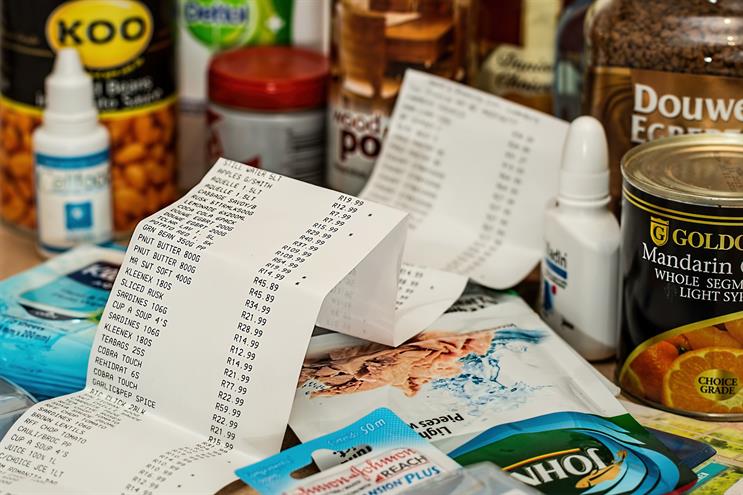Asda isn’t offering the broader customer experience that Sainsbury's has focused on through its strong foray into local convenience-based retailing
The decision by Asda to confirm its commitment to British Farming by agreeing to increase the price of milk to Arla Foods does perhaps have a whiff of the diversion tactic about it – laudable as it is, releasing the news just in advance of Tuesday’s Second Quarter press release does seem the actions of a retailer who knows it is in for a continuing tough year.
Already the worst performer of the big four in the first quarter, Asda announced another set of poor results this week with a second quarter deterioration in like-for-like sales of 4.7%.
Floundering in no-man's land
Sainsbury’s is comfortably overtaking Asda as the No.2 with its focus on convenience and continued growth in its Southern heartlands. Also, notwithstanding Tesco’s mini 1st quarter improvements, Asda is also finding the heat of the discounters difficult to contend with; alongside the now almost stubborn resistance to embrace meaningful discounts (Clarke has repeatedly dismissed jumping on the "sales gimmick bandwagon"), Asda does appear to be floundering in no-man's land.
No longer seen as the value-led consumer champion, that spot firmly owned by Aldi and Lidl, Asda isn’t offering the broader customer experience that Sainsbury's has focused on through its strong foray into local convenience-based retailing.
The question has become, what is the point of Asda?
Kantar, as recently as July 2015, stated, "Asda is being run more for profit than a market share of revenue. It also hasn’t got a substantial convenience store estate."
Asda is being run more for profit than a market share of revenue. It also hasn’t got a substantial convenience store estate
The days of the "Asda pocket tap" being synonymous with value has long gone, taken over by retailers such as Lidl who are also championing quality and fresh. It’s stealing not only Morrison’s "market place" territory and Sainsbury and Waitrose higher end own-label ranges, but most definitely delivering at a price point which eats into Asda and Tesco heartlands.
Worst storm in retail history
Andy Clarke blamed "terrible weather" and "unprecedented moves in the supermarket industry" for first quarter downturn in sales and clearly believes that his approach to a long-term strategy versus a mass jump to discounting is the right approach to "navigate a steady course through the worst storm in retail history."
Undoubtedly Asda has the backing of its parent company, Walmart, and Alex Russo, CFO, is confident that, "behind the negative sales number lies a more positive story for Asda." However, 18 months into the businesses ‘six strategic priorities’ timetable, with the focus on improving the core business, extending Asda’s reach and expanding the brand into new markets, the question has to be asked; how successful is this approach being?
Tesco will not remain sucker-punched
Price and quality is being owned by Aldi and Lidl; The Co-operative is making a comeback in its retail convenience business post its "annus horribilis" and mass market convenience is increasingly being owned by Sainsbury’s. You can’t imagine Tesco remaining sucker-punched forever, so Asda’s "Click and Collect" developments also seem light in real strategic sales growth opportunities.
Asda needs to develop a clear brand strategy that consumers can engage with and that starts with a rebalancing of its portfolio to include more convenience
Asda needs to develop a clear brand strategy that consumers can engage with and that starts with a rebalancing of its portfolio to include more convenience and "there for you" stores. A focus on the South is also a necessity if it wishes to engage with a quality, discount savvy consumer and a rebalancing of its oft oversized, Americanised and super-sized own-label ranges, should be top of its list. The retailer is not short of talent or cash; a £1billion war chest has been released to drive lower prices and invest in quality, style and design. However, to what extent is Asda actually engaging with the consumer zeitgeist?
Engaging the zeitgeist
Clarke announced that an intensive piece of research was underway to understand "what drives current buying decisions so that we can deliver real solutions for our customers in the Asda way" and this was to ensure the business did not get side-tracked by "the short-term fixes that are saturating the supermarket industry." I’m not sure you need to undertake much consumer insight to get to the heart of the answer.
The Asda consumer has traditionally loved the brand for its great value-led prices, delivered in well maintained stores, with good own label and branded ranges delivered by brilliant and friendly staff. I’d put money on the fact the insight will pretty much say consumers still want the same things in 2015 and that getting back to these basics will lay the foundations for an Asda resurgence.
As an ex Norman/Leighton retail graduate of 20 odd years ago, I hope the brand can "breakout" again, otherwise we are in for a serious case of spilt milk.


